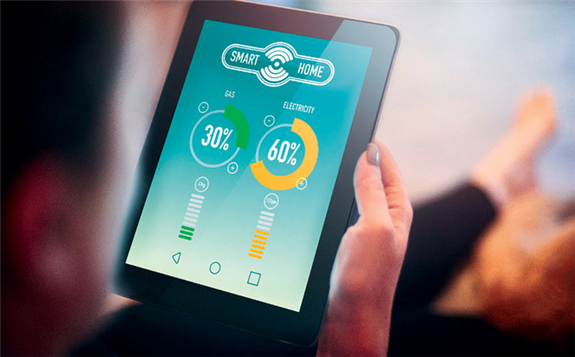As global leaders converge at the Middle East Green Initiative Summit on Oct. 25, the focus will be on new ideas and proposals to replace the wasteful and polluting ways in favor of environmentally-friendly methods.

Meanwhile, there are set to be profound changes at the grass-roots level, in terms of sustainable living environments. A number of “green” startups have emerged in the Kingdom in recent years, offering products and services that aim to reduce carbon emissions while improving the quality of life for ordinary citizens.
One such company is Riyadh-based EIA Energy. Founded in 2020 with support from Monsha’at, the General Authority for Small and Medium Enterprises, EIA Energy is a 12-employee firm with a turnover of SR1.2 million and projected growth up to SR7.5 million by Q4 2022.
“EIA Energy was founded as an energy services company (ESCO) and has developed into a provider of end-to-end energy management services and solutions to reduce energy consumption and increase energy efficiency in client facilities,” CEO Abdullah Al-Othman told Arab News.
As a certified ESCO, EIA Energy provides three kinds of service: First, energy consulting and energy monitoring in order to reduce costs; second is the obtaining of “green certification” for facility owners and managers; and third is guidance regarding green building techniques in terms of architecture, efficient water use, landscaping and eco-friendly transport solutions.
EIA Energy describes its energy efficiency strategy as the “SMARRT Approach” – an acronym for Surveying, Monitoring, Analyzing, Reducing, Reviewing and Targeting.
There will be a growing demand for this kind of consultancy in Saudi Arabia as builders and developers conform to new green regulations while satisfying the demand of modern families for a healthier and better way of life.
“This is a good time for ESCOs right now,” says Al-Othman, “because we’re catching the beginning of the whole transformation that’s taking place, the cultural shift. There are a lot of government initiatives – Vision 2030, SGI, Green Riyadh — which stimulate the entire market and create a lot of opportunities.”
In the 1960s and 70s Riyadh and other cities in the Kingdom became the so-called “supergrids” of intersecting highways, filled in with buildings and concrete surfacing with only a small allowance for green spaces. Concrete absorbs and radiates heat in the summer months, while preventing ground absorption of rainwater during the winter — causing severe and sometimes fatal flooding.
“We say no to concrete,” says EIA Energy GM Hamza Khan. “We prefer gravel because there has to be porous ground that allows rainwater to go back into the earth and replenish the groundwater sources.”
Builders, developers and facility operators have no choice but to move from words to action. “We are getting a lot of inquiries from apartment and compound owners, supermarkets, retail outlets and restaurants,” says Khan. “They all want to reduce their costs and their emissions – to offer something more sustainable and to stand apart from the competition.”
Much of EIA Energy’s efforts are dedicated to enabling LEED (Leadership in Energy and Environmental Design) Certification from the US Green Building Council. This certification promotes a higher quality of life for building occupants in terms of energy and water efficiency and improvement of the living environment. It follows the principle of the triple bottom line of the 3Ps: People, planet and profit. This certification can be applied to any built-up area: residential facilities, office buildings, educational institutions and hospitals.
EIA Energy relies on hardware and software supplied by its UK partner Best Energy. “But it is clear that the technologies we bring to Saudi Arabia should be manufactured or at least assembled here,” says Al-Othman. “And that would solve a major issue that we are facing now with the destruction of the global supply chain due to COVID-19 and other factors.” The company also has ambitions to develop its own proprietary solutions as it grows and expands.
“Saudi Arabia is going green and is moving towards energy efficiency and reducing its carbon emissions,” says Al-Othman. “Green tech startups and ESCOs have a major part in this. We are benefiting from new government initiatives, and we just want to keep improving and introducing more services — in line with Vision 2030, which says that SMEs should play a key role in the future Saudi economy.”